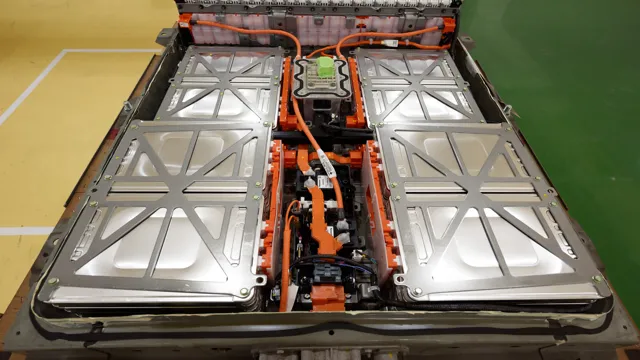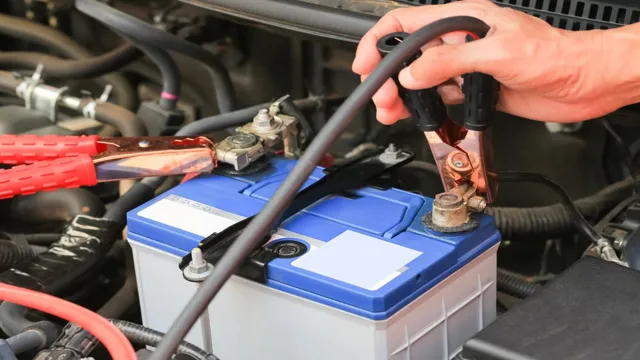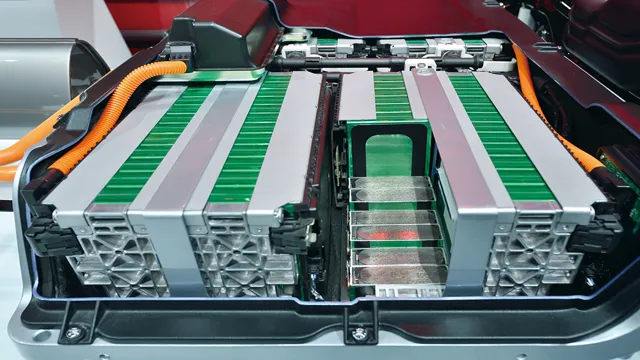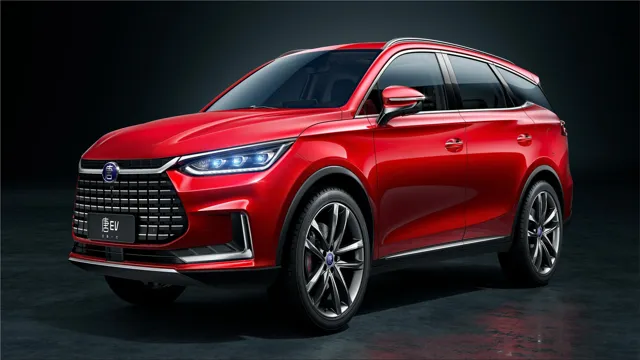The Ultimate Guide to Electric Car Battery Technology: Exploring the Details and Advancements
As the world shifts its focus towards reducing carbon emissions, electric cars are gaining popularity all around the world. More and more automobile manufacturers are investing in developing electric vehicles with long-lasting battery packs that provide enough mileage for daily use. However, have you ever wondered how these electric car batteries work? What is it that makes them more efficient than conventional ones? In this blog, we will dive into the details of electric car batteries, their types, and how they function to power your vehicle.
So buckle up and let’s get started!
Battery Capacity
Electric car battery details are vital to understand for prospective electric vehicle (EV) owners. The battery is the most crucial component of an electric car, as it impacts the vehicle’s performance, range, and cost. The capacity of the battery is measured in kilowatt-hours (kWh), and it determines how far an EV can travel on a single charge.
Most batteries have a range of 200-300 miles; however, some high-end models boast a range of up to 400 miles or more. The size of the battery also plays a significant role in the cost of the vehicle, as larger batteries and better range typically come at a higher price point. Additionally, it is essential to note that battery capacity degrades over time due to usage, temperature changes, and other factors.
This means that EV owners can expect to see a decrease in range after several years of use. Overall, understanding the battery capacity and capabilities of an electric car is crucial in making an informed decision about purchasing and operating an EV.
Understanding Battery Capacity and Range
Battery capacity is the measure of the amount of energy that a battery can store. It is usually measured in units of Ampere-hours (Ah) or Watt-hours (Wh). The higher the capacity of a battery, the more energy it can store and the longer it can power a device.
For instance, a smartphone with a battery capacity of 3000mAh can last longer than another smartphone with a battery capacity of 2000mAh. Understanding the battery capacity of a device is crucial for assessing its performance and endurance. When choosing a device, it is important to balance the battery capacity with other factors, such as device usage and energy efficiency.
High-capacity batteries are usually bulkier and heavier, while a low-capacity battery may be insufficient for certain usage scenarios. Ultimately, the battery capacity plays a significant role in determining the range and usability of a device, especially when it comes to electric vehicles. A battery with a high capacity would provide greater range and performance.
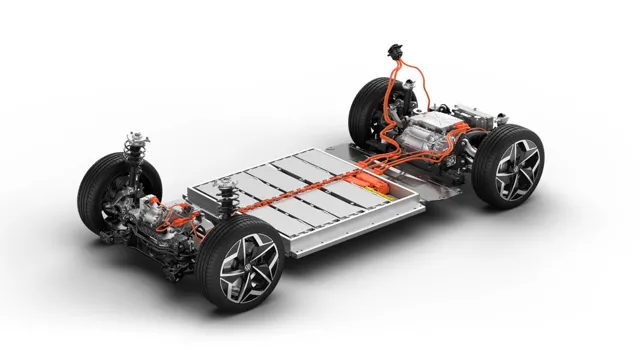
Factors Affecting Battery Capacity
Battery capacity refers to the amount of energy a battery can store and deliver to a device. Several factors affect the capacity of a battery, including its chemistry, age, temperature, and charging/discharge cycles. The type of chemical compounds used in a battery determines its overall capacity, with some offering high energy density and others providing longer life cycles.
As batteries age, their capacity gradually decreases, and they require more frequent recharging. Temperature also plays a significant role in determining battery capacity, with extreme heat or cold adversely affecting performance. Lastly, the number of charge/discharge cycles that a battery undergoes influences its overall capacity, with more cycles resulting in a decrease in capacity over time.
Understanding these factors and taking steps to mitigate them can help preserve the lifespan and performance of batteries, ensuring longer run times for our devices.
Charging Time
When it comes to electric car battery details, the charging time is a crucial factor that many drivers consider. Electric cars typically take several hours to reach a full charge, compared to the few minutes it takes to fill up a gas tank. This is due to the difference in how the two types of vehicles work.
While gas cars fill up with fuel, electric cars require a steady supply of electricity to recharge their batteries. However, as technology improves, the charging time for electric cars is decreasing. Some newer models can charge up to 80% of their battery in as little as 30 minutes with fast-charging stations.
It’s important to note that charging times can vary depending on the battery size, the charging station’s power output, and the type of connector used. Overall, as the world moves towards greener energy sources, advancements in electric car battery technology will continue to make charging times more efficient and convenient.
What Affects Charging Time?
Charging Time Have you ever noticed that sometimes your phone takes longer to charge than other times? Wondering why that is? Well, there are several factors that can affect charging time. The first and most obvious is the charger you are using. Different chargers have different wattage outputs, and using a charger with a lower wattage output will take longer to charge your device.
Another factor is the battery itself. Over time, batteries naturally lose their capacity and may take longer to charge. Additionally, using your phone while it’s charging can slow down the process, as the phone is using energy while it’s being charged.
Lastly, the temperature of the environment can also affect charging time. Charging your phone in extremely hot or cold temperatures can slow down the charging process. So, the next time your phone takes longer to charge, consider these factors and make any necessary adjustments to speed up the process.
Different Types of Charging Methods
When it comes to charging methods for electronic devices, there are a few different options available. Each method has its own pros and cons, including how long it takes to fully charge your device. The most common charging methods include wall chargers, USB chargers, and wireless chargers.
Wall chargers tend to provide the fastest charging times, as they can deliver a high amount of power to your device. USB chargers are also fairly quick, but the charging time can vary depending on the device and the type of USB port being used. Wireless chargers tend to be the slowest method of charging, as they rely on a slow trickle of power being sent to your device over time.
While wireless chargers may take longer to fully charge your device, they are often more convenient to use and can help reduce clutter since there are no cords or cables to deal with. Ultimately, the charging time for your device will depend on the specific method being used and the power requirements of your device. By choosing the right charging method for your needs, you can ensure that you always have a fully charged device when you need it.
Charging Stations Available
If you’re driving an electric vehicle, finding charging stations is crucial. Luckily, many communities are catching up and installing them in various locations. When you do come across a charging station, it’s important to know how long it will take your vehicle to charge.
Charging times vary based on several factors, such as the type of vehicle, the battery size, the level of charging, and the charging station’s capabilities. For example, a standard Level 2 charging station can take anywhere from 4-8 hours to charge a vehicle, while a fast-charging station can give you an 80% charge in 30 minutes or less. So, before you plug in your car, be sure to check the station’s specifications and assess how long you want to stay in the area.
It’s better to be safe than sorry when it comes to charging your vehicle and planning your route. Remember, charging stations are still not as common as gas stations, so always have a backup plan in case your preferred charging option is out of order.
Cost Considerations
When considering the cost of an electric car, it’s important to take a closer look at the battery details. The battery is a major component that can impact both the purchase price and the overall cost of ownership. While electric car batteries can be expensive to replace, they typically require less maintenance than traditional gas-powered engines.
Additionally, some manufacturers offer warranties on their batteries that can help mitigate costs. It’s also worth noting that the cost of batteries is expected to decrease over time as technology advances and production processes become more efficient. Ultimately, while the upfront cost of an electric car may be higher, the savings in fuel and maintenance costs over the life of the car can make it a more cost-effective choice in the long run.
On the Upfront Cost of Electric Cars
When contemplating the purchase of an electric car, one of the biggest considerations is the upfront cost. While it’s true that electric cars may seem more expensive than their gas-powered counterparts initially, it’s important to take a closer look at the bigger picture. When factoring in the cost of fuel over the lifespan of the vehicle, as well as potential tax credits and incentives, the overall cost may actually be comparable to that of a traditional car.
Additionally, as technology advances and becomes more widespread, the cost of electric cars is likely to continue to decrease. It’s also worth noting that over time, electric cars can actually save money on maintenance, as they have fewer moving parts than traditional cars and don’t require oil changes or other routine maintenance. Ultimately, while the upfront cost of an electric car may be a bit daunting, it’s important to consider the long-term savings and environmental benefits that come with driving an eco-friendly vehicle.
Long-Term Saving Benefits
When it comes to long-term savings, there are several cost considerations that are important to keep in mind. First and foremost, you should consider the impact of inflation. Over time, the cost of goods and services will naturally rise, meaning that the money you save today may not be worth as much in the future.
To combat this, it’s important to choose a savings plan that has a higher interest rate than inflation. Another factor to consider is taxes. Depending on the type of savings plan you choose, you may be taxed on your earnings.
It’s important to understand the tax implications of each plan and weigh the potential benefits against the costs. Additionally, you should consider any fees associated with the plan, such as maintenance fees or management fees. These costs can add up over time and eat into your savings.
By carefully weighing these cost considerations and choosing a savings plan that balances potential benefits with the associated costs, you can maximize the long-term benefits of saving money.
Durability and Maintenance
When it comes to electric car battery details, durability and maintenance are important factors to consider. Unlike traditional car batteries that require regular maintenance and replacements, electric car batteries are built to last. However, this doesn’t mean that they are immune to wear and tear.
Over time, the battery’s capacity may start to degrade, and it may need to be replaced. Fortunately, most electric car batteries come with warranties that cover battery replacement in case of premature failure. Additionally, proper maintenance practices such as keeping the battery charged between 20%-80% and avoiding deep discharges can help prolong the battery’s lifespan.
Overall, while electric car batteries may last longer than traditional car batteries, proper maintenance is still key to ensuring that they perform optimally over the years.
Lifespan of Electric Car Batteries
One of the most common concerns that drivers have about electric vehicles (EVs) centers around the longevity of their batteries. After all, the battery is one of the most expensive and integral components of an EV, so it makes sense that drivers want to ensure that their investment will last. Luckily, modern EV batteries are designed to last for many years with proper maintenance and care.
The durability of an electric car battery largely depends on the specific model and how it is used. EV batteries can generally last anywhere from 8 to 20 years, or even longer in some cases. Regular maintenance, such as keeping the battery charged between 20% and 80% and avoiding extreme temperatures, can help prolong the lifespan of the battery.
Additionally, some car manufacturers offer battery warranties that cover the cost of replacing the battery if it fails within a certain timeframe.
Maintenance Tips for Long-Lasting Batteries
When it comes to the longevity of your battery, proper maintenance is key. One of the most important things you can do is to avoid overcharging your battery. Charging your battery past 100% can damage its cells and shorten its lifespan.
It’s also important to store your battery at the proper temperature, as extreme heat or cold can affect its performance. Another tip is to use the right charger for your battery, as using a charger with the wrong voltage or current can cause damage. Additionally, it’s a good idea to periodically clean your battery contacts to ensure a good connection.
By following these simple maintenance tips, you can ensure that your battery lasts as long as possible.
Conclusion
In conclusion, the details of electric car batteries may seem overwhelming at first, but they are ultimately the key to a cleaner and more efficient transportation future. It’s important to remember that while today’s battery technology may have its limitations, it is constantly evolving and improving. So just like with any technology, the important thing is to stay informed and keep charging forward with the best battery possible.
“
FAQs
What is an electric car battery made of?
Most electric car batteries are made of lithium-ion cells.
How long does an electric car battery last?
The lifespan of an electric car battery can vary, but most last anywhere from 8-10 years or around 100,000 miles.
Can you charge an electric car battery with a regular outlet?
Yes, but charging using a standard outlet will take much longer than using a dedicated EV charger.
How does the battery affect the range of an electric car?
The size and capacity of the battery plays a large role in determining the range of an electric car. Larger batteries generally mean a longer range.

